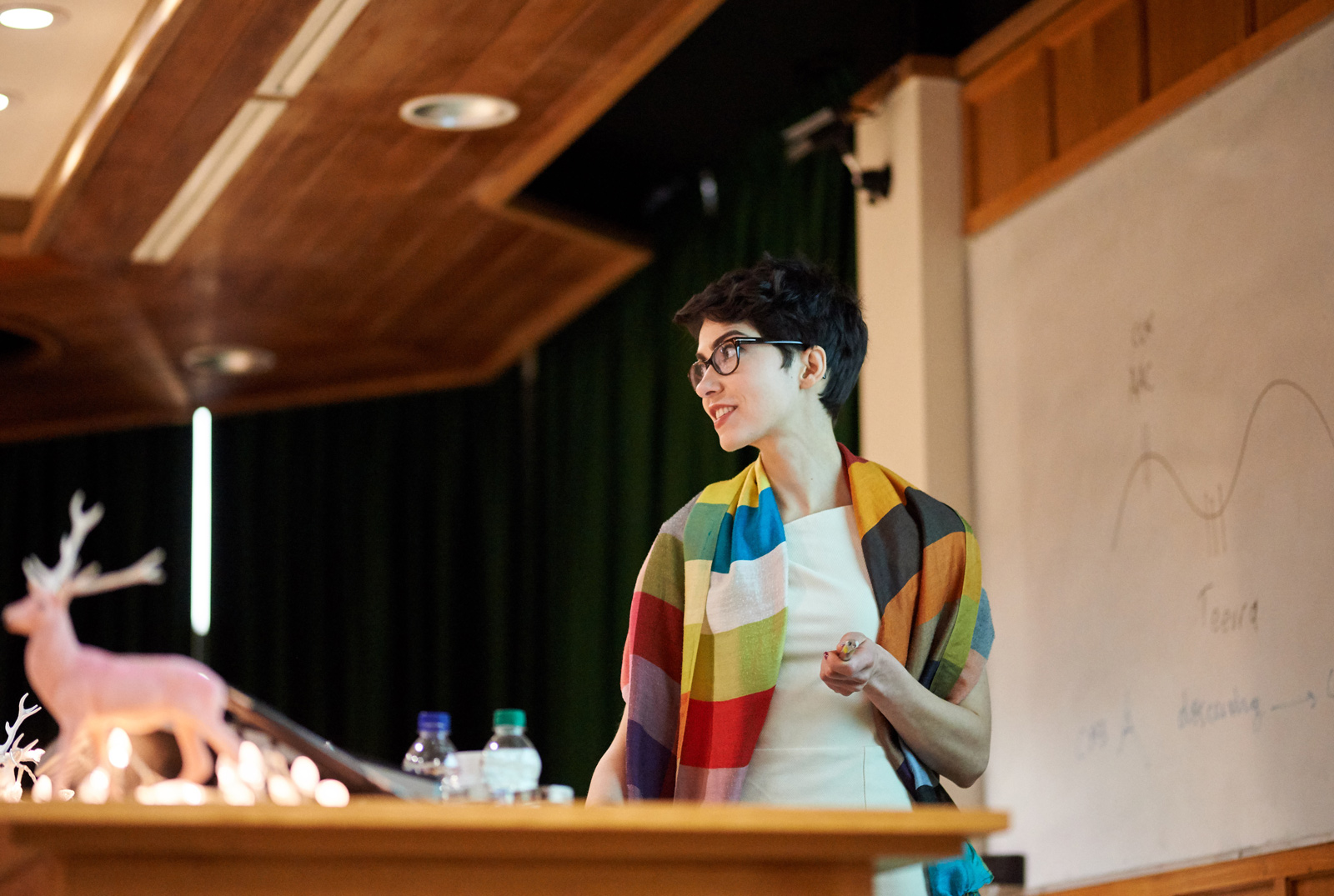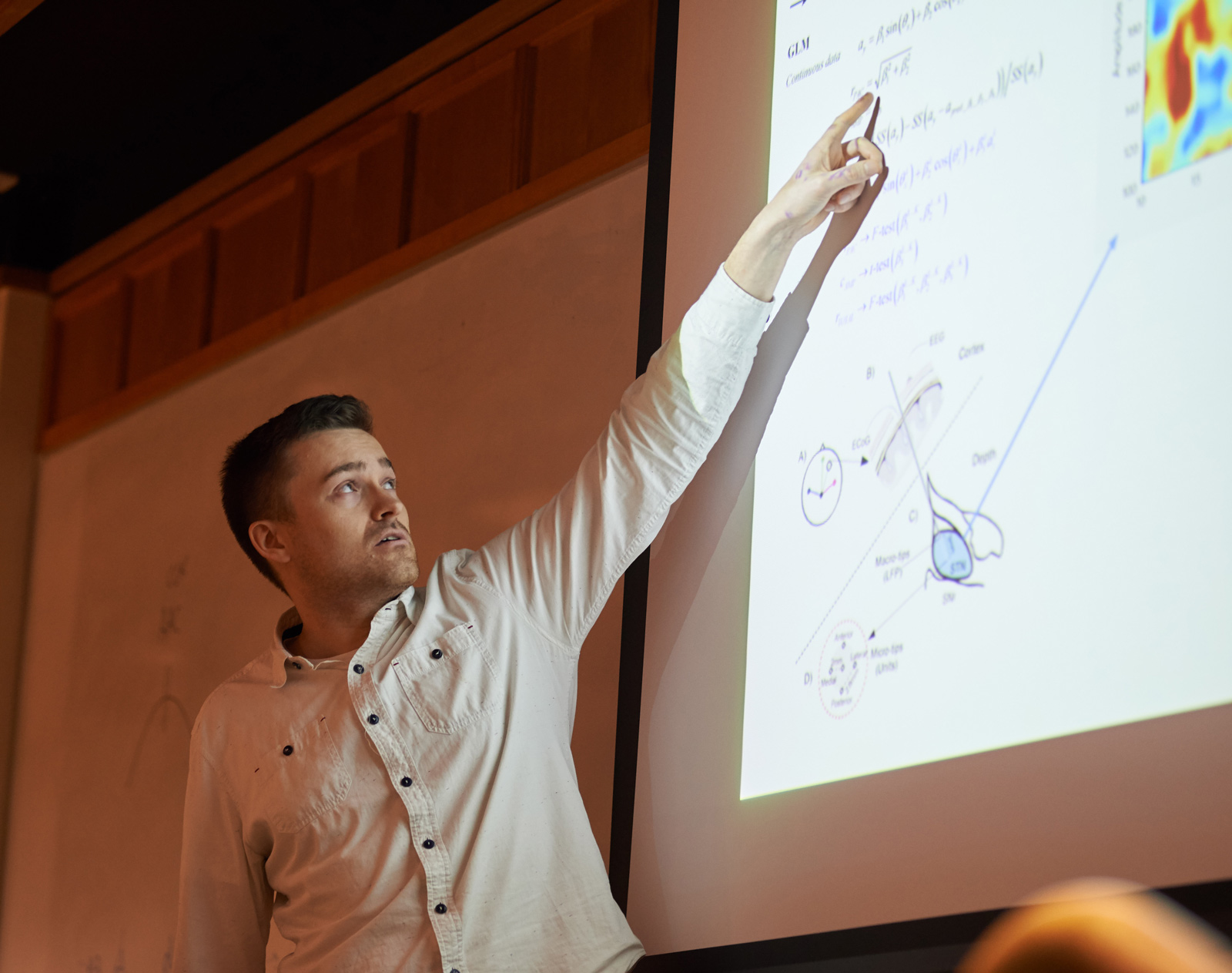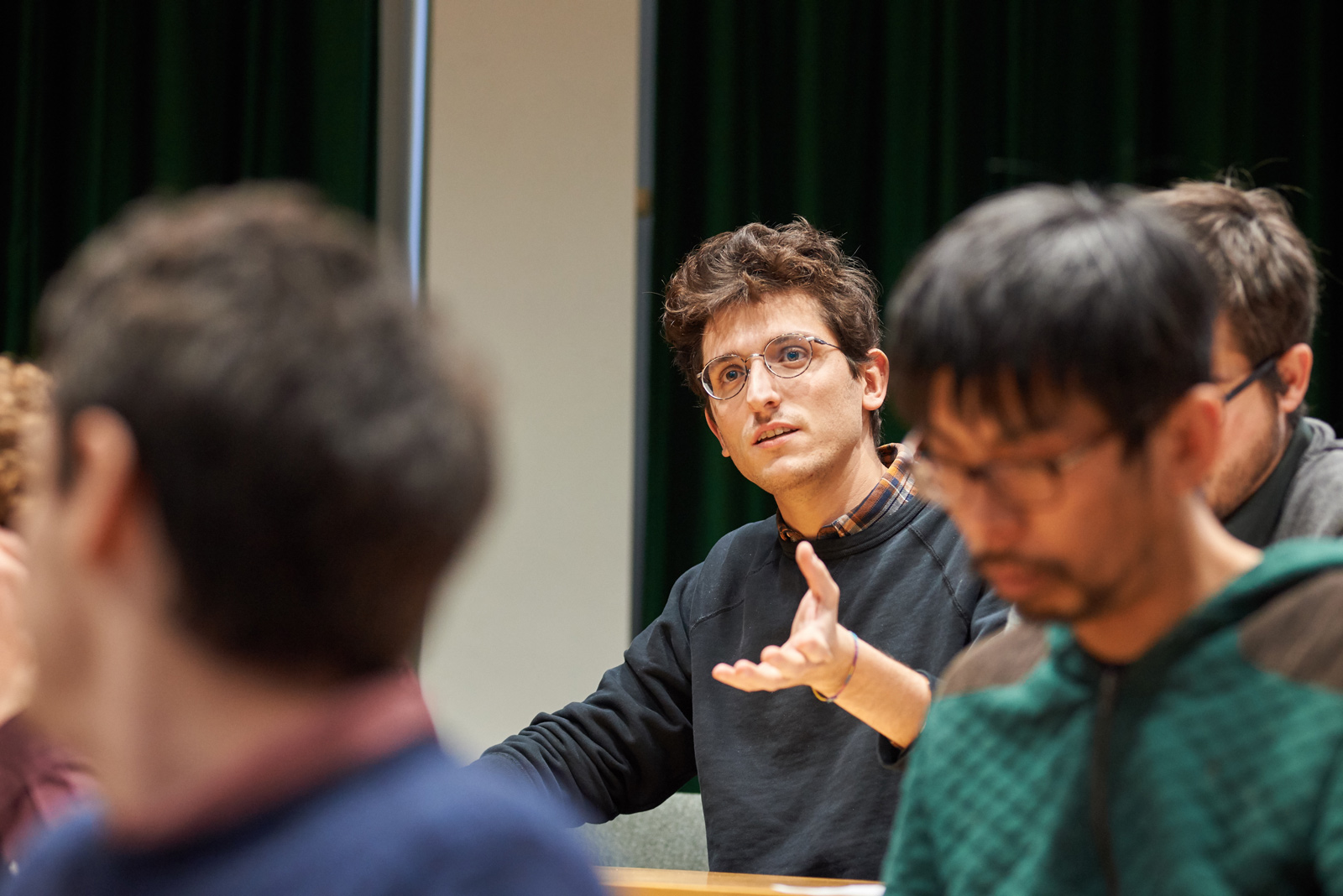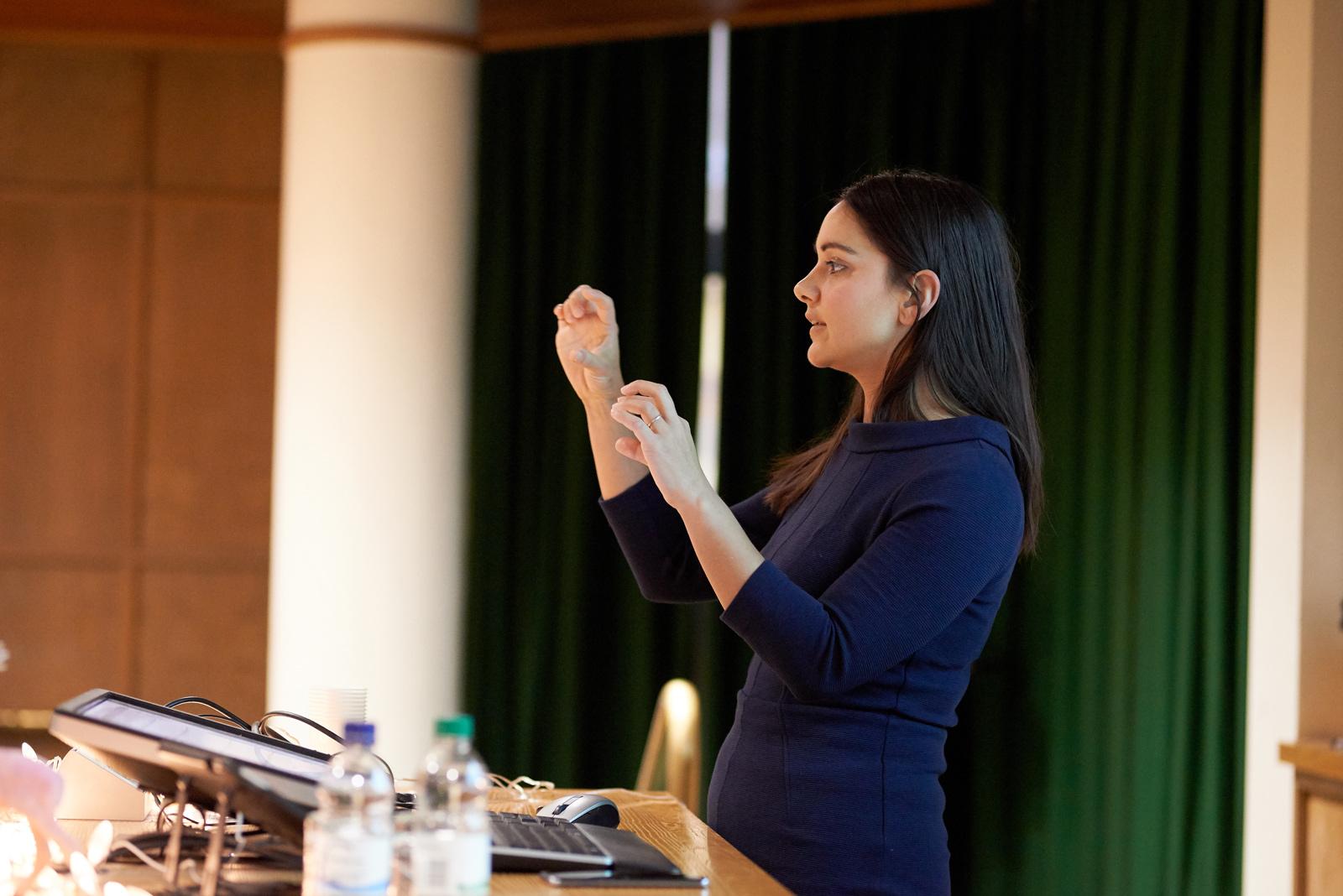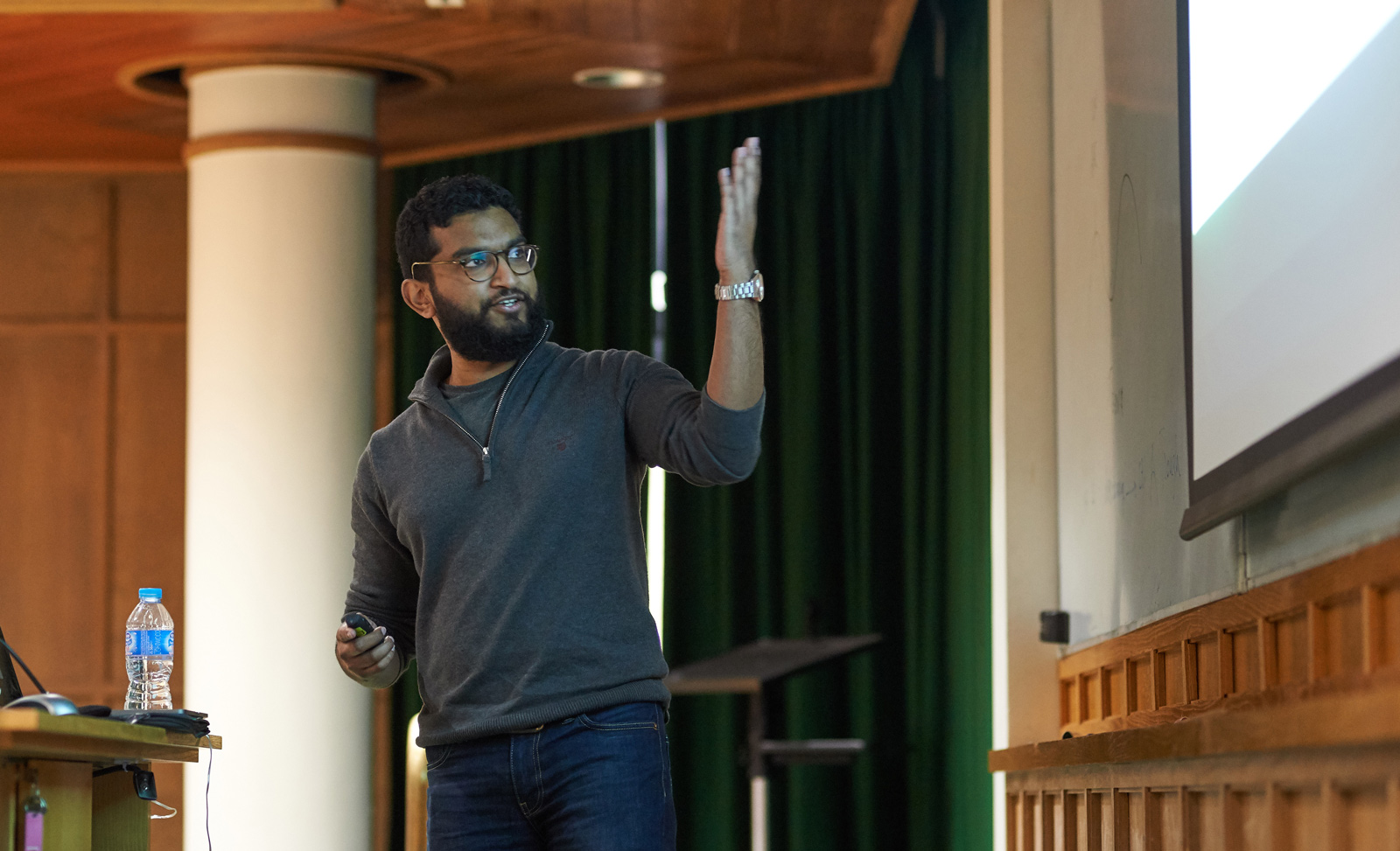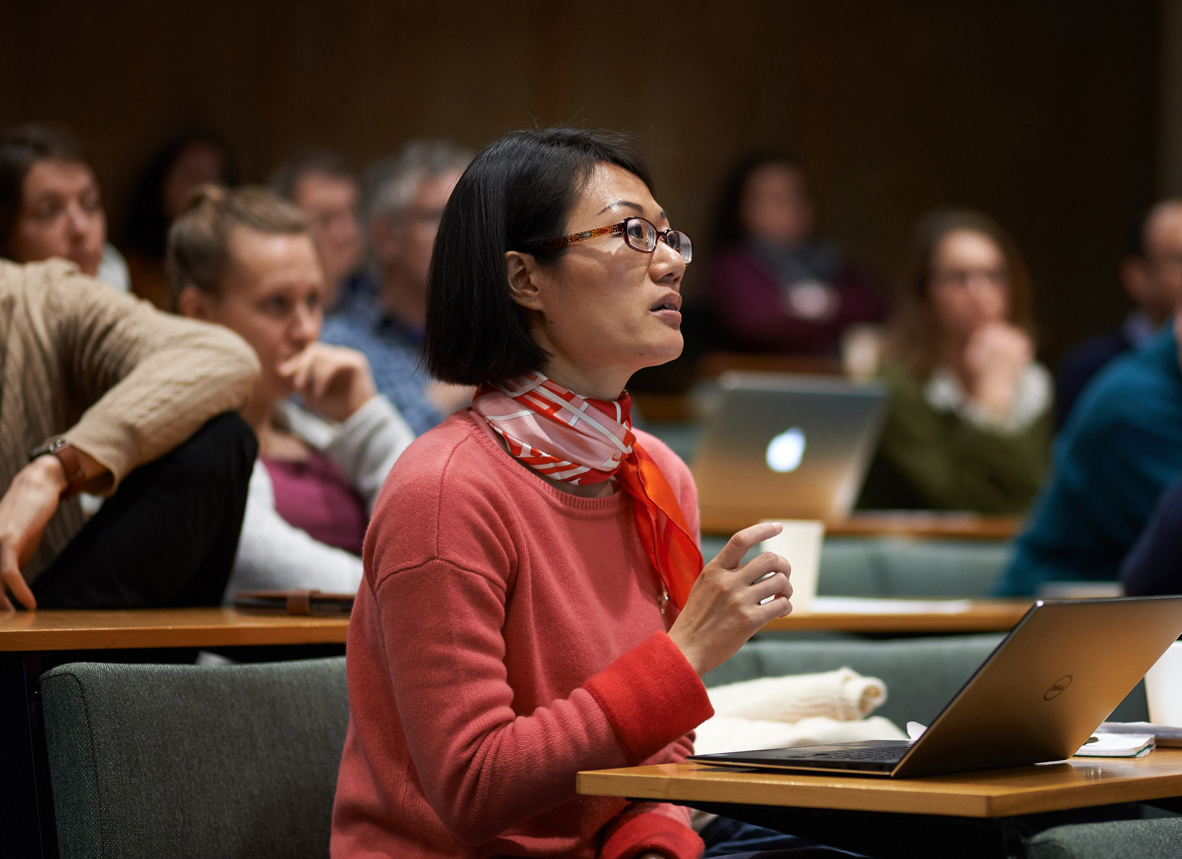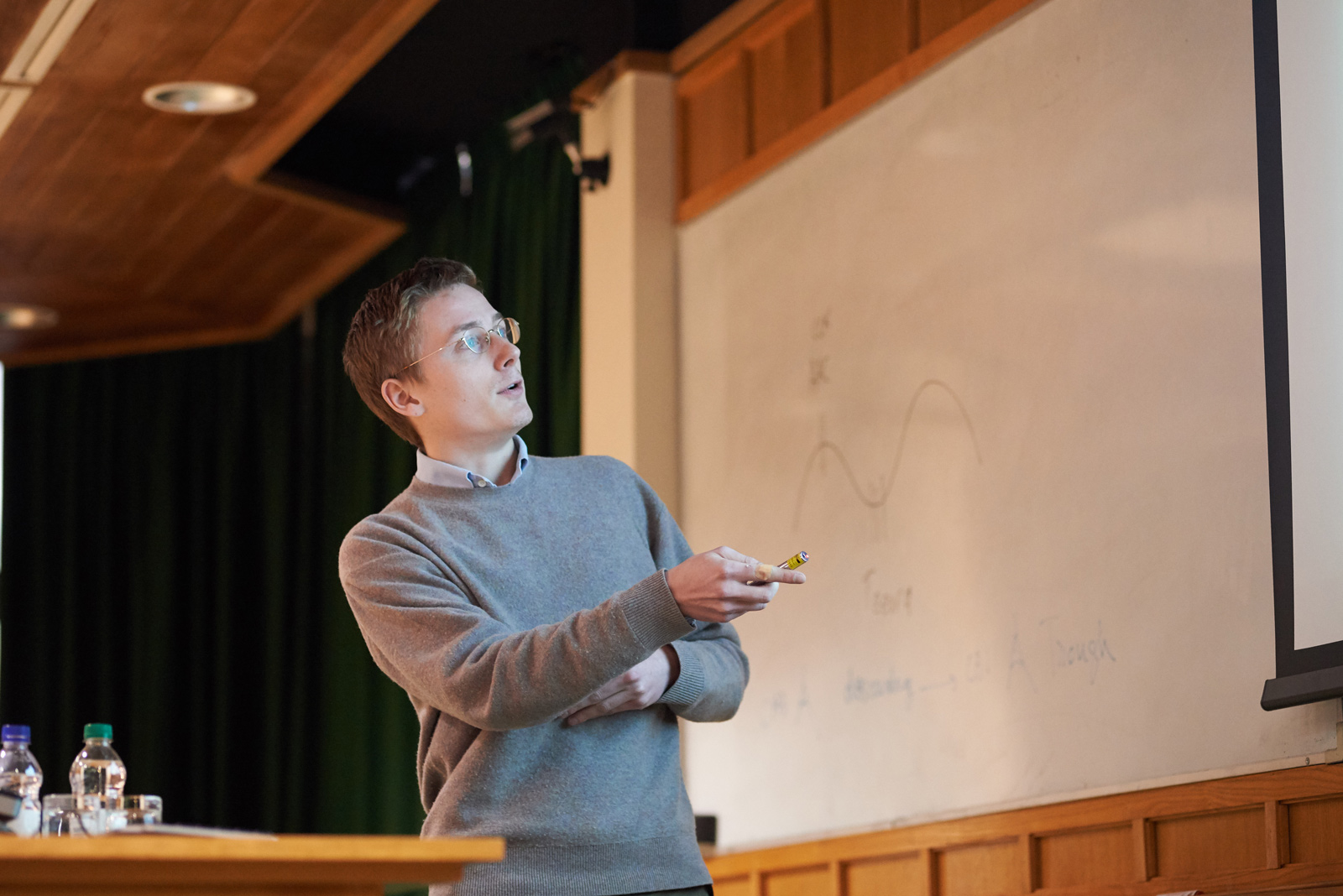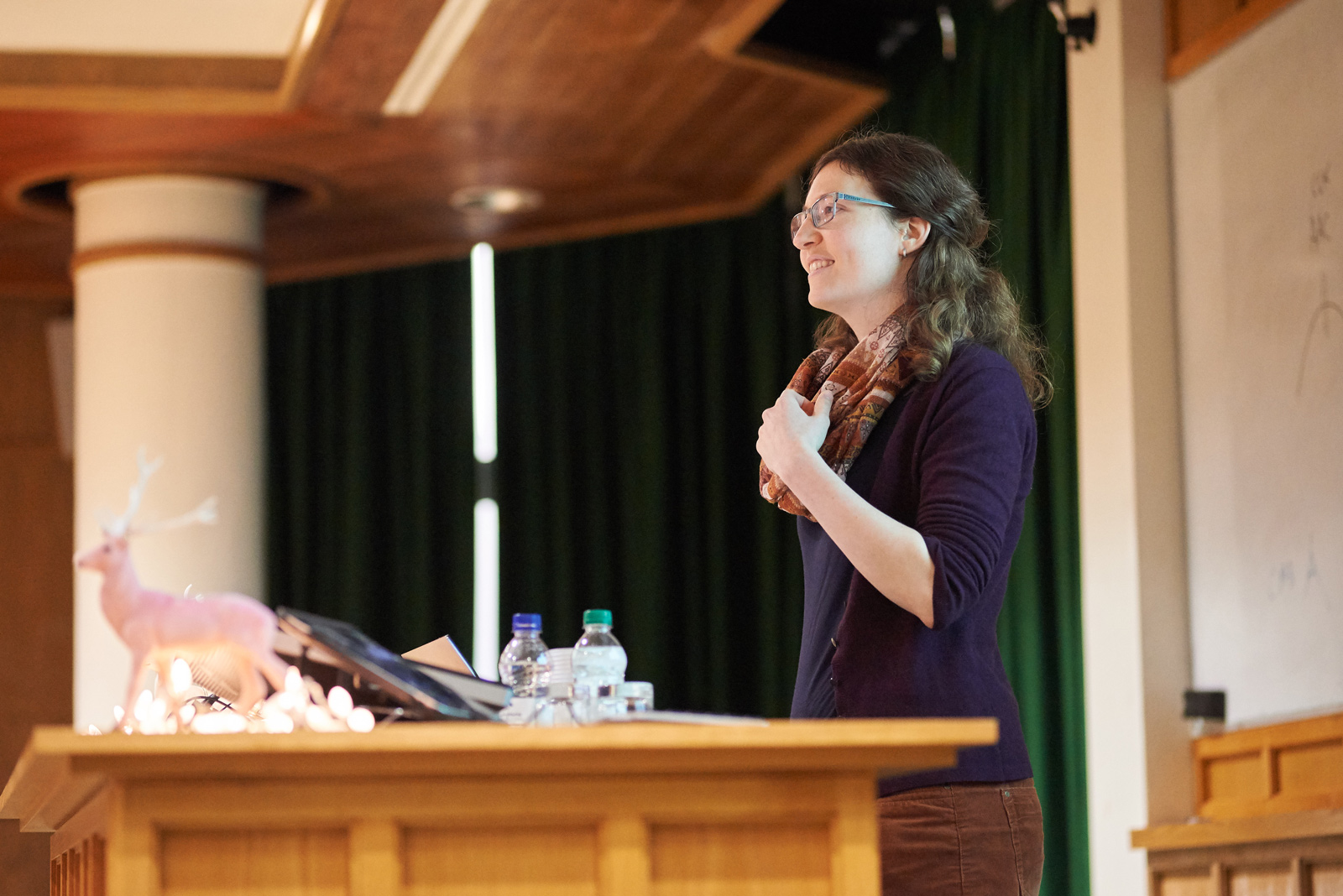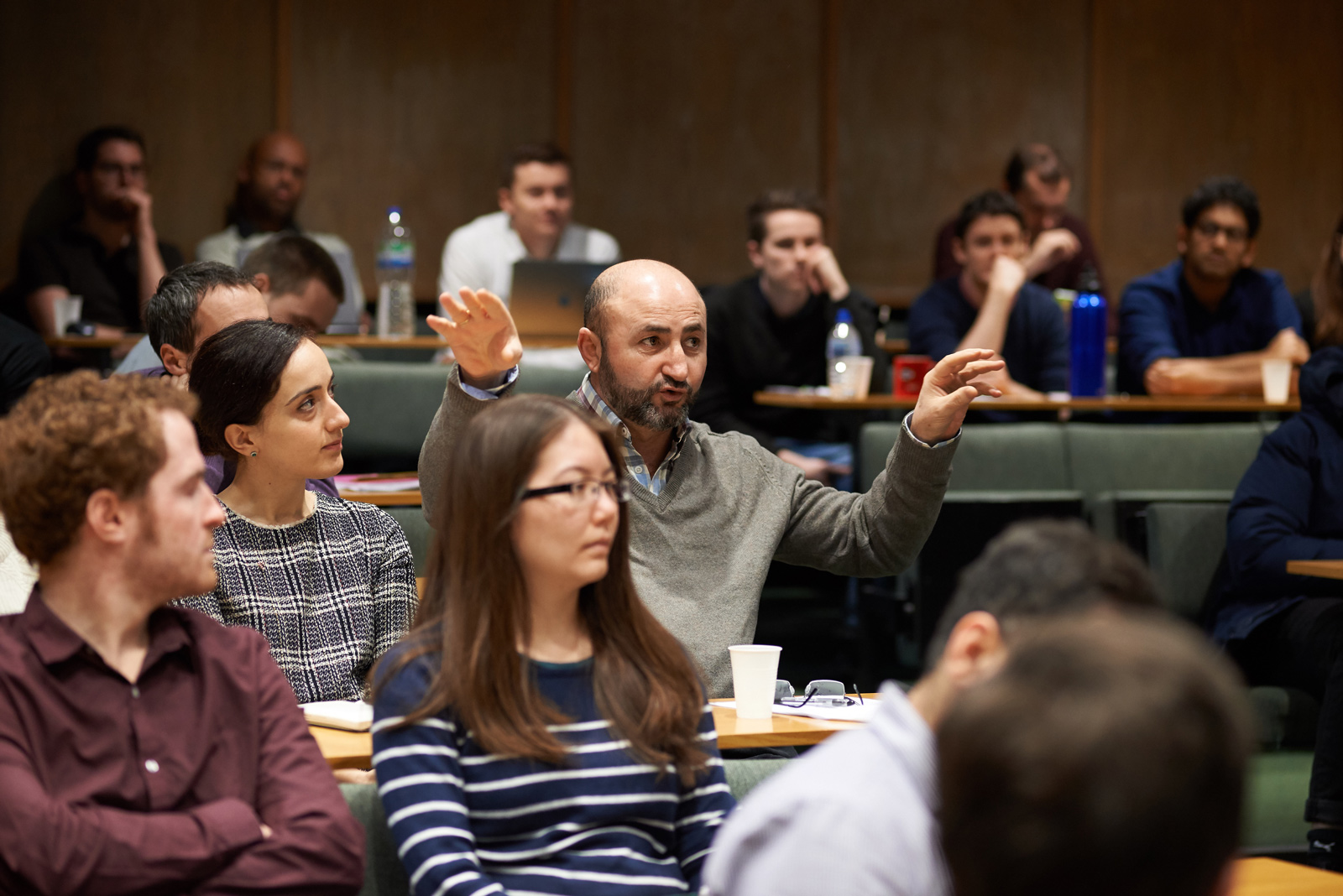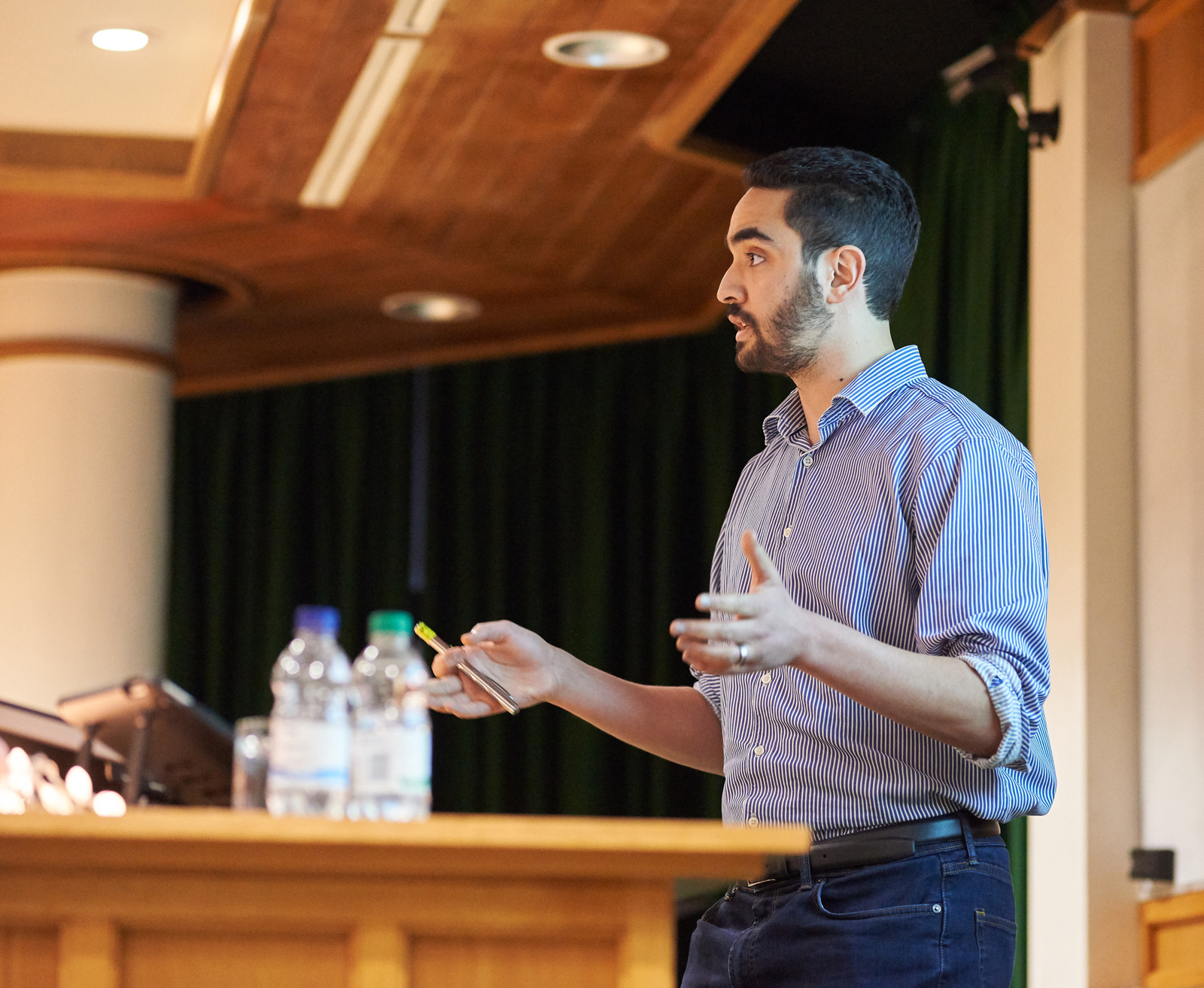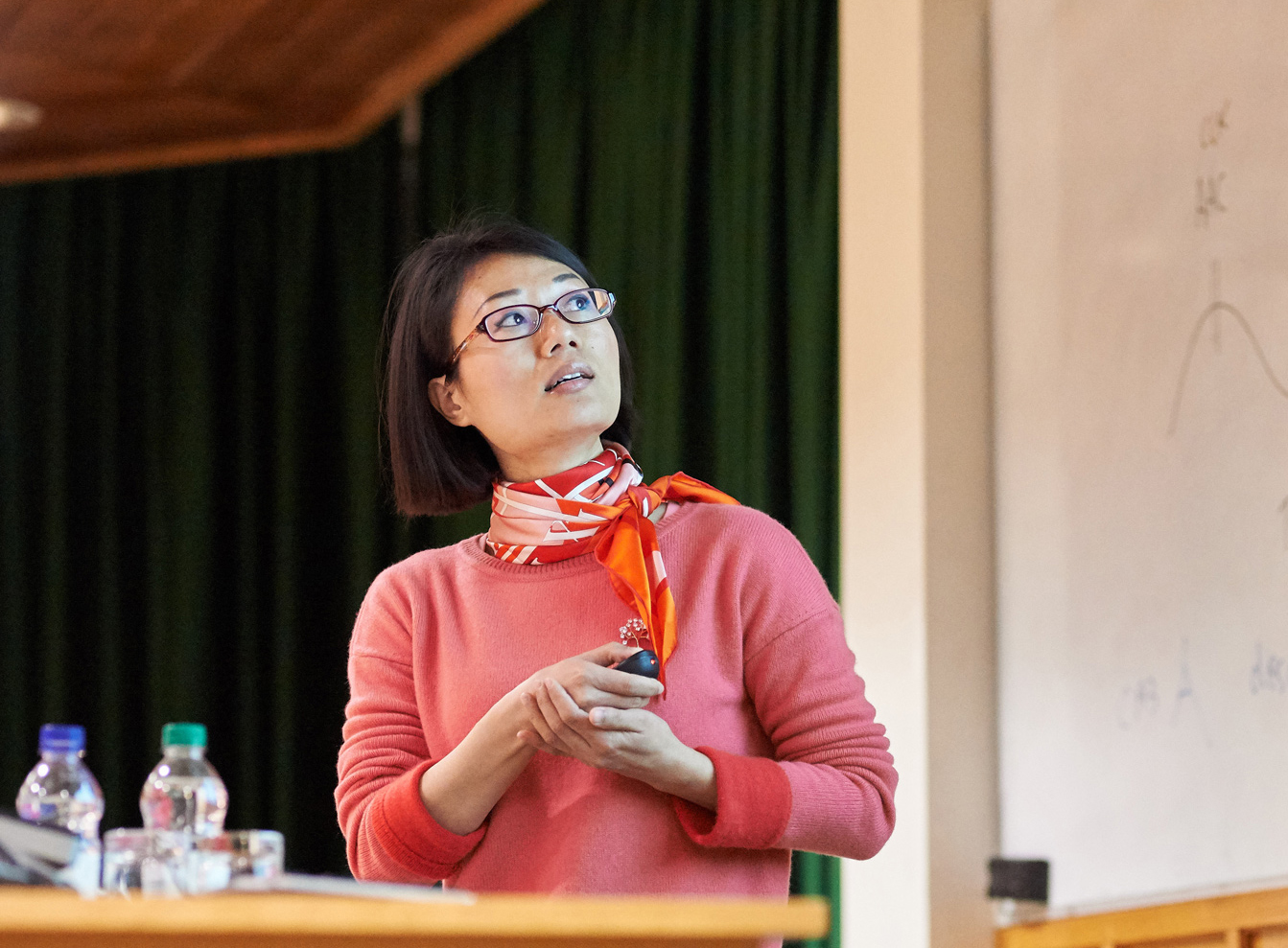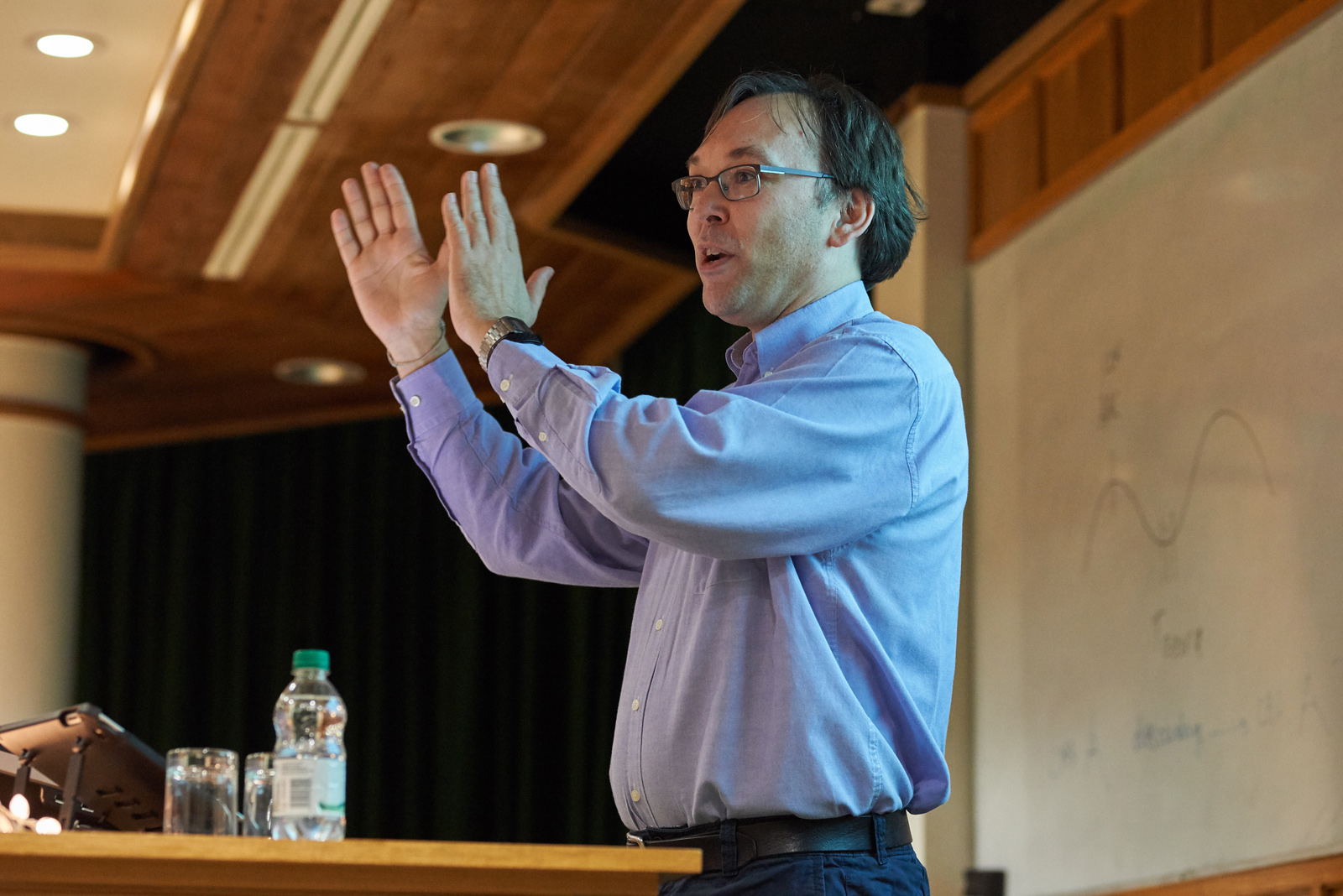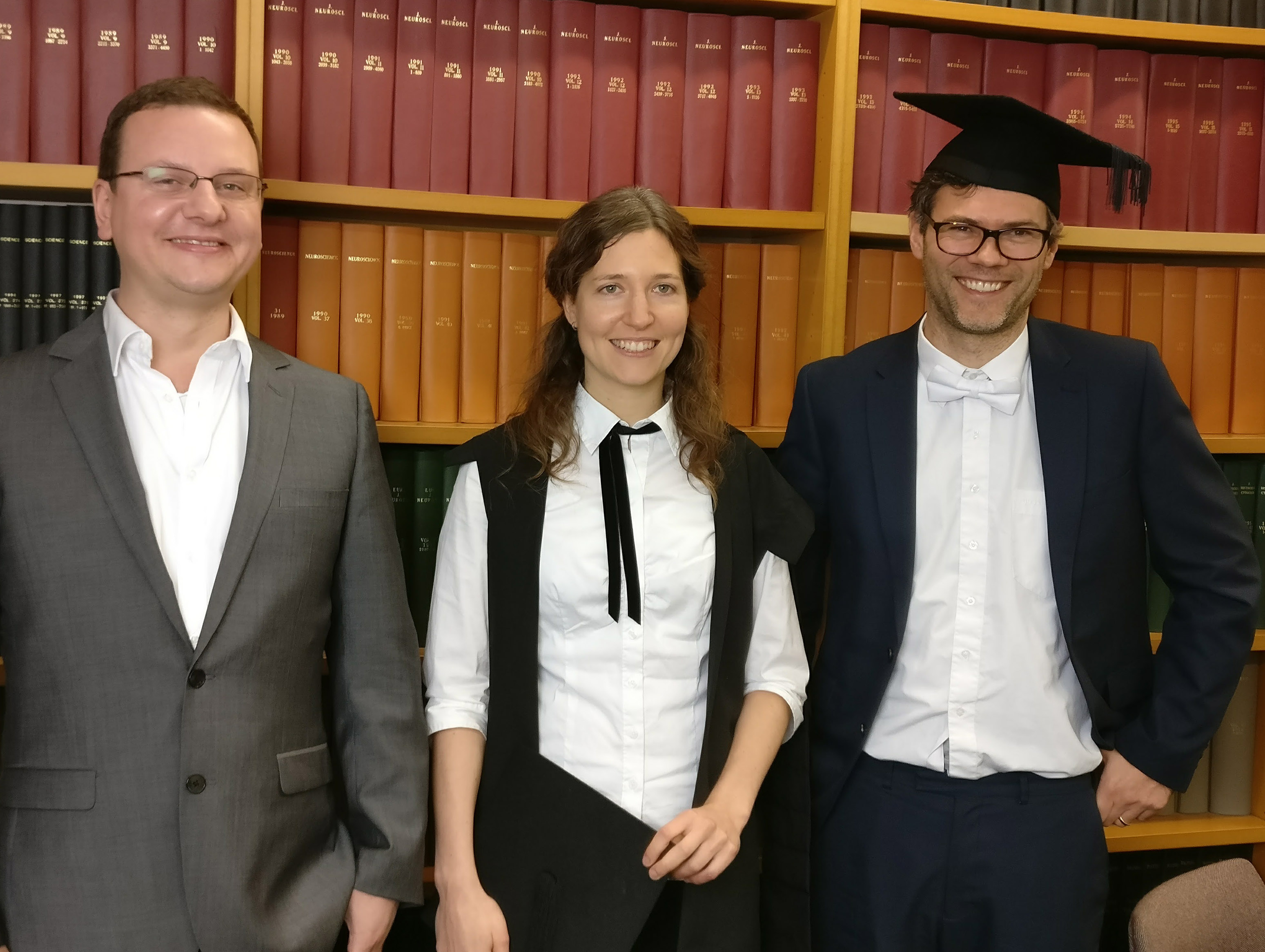
The Unit held its sixth Science Day on Friday 15th December 2017. Ongoing and future research projects were the focus of discussion, and Unit members and visitors enthusiastically took the chance to offer the constructive criticism that is vital for nurturing collaborative, world-leading research.
There were 13 short talks and 7 poster presentations, all of which were given by the Unit’s students and postdoctoral scientists. Attendees were also treated to a Special Lecture on competition and sharing in computational neuroscience by Dr Stephen Eglen from the University of Cambridge.
Unit Director Professor Peter Brown commented “It was inspiring to see how the creative thinking and innovative experiments of the Unit’s early-career scientists are driving back the frontiers of brain research. It was also excellent to hear from Stephen Eglen as the Unit prepares for the launch of its new resource for open science and data sharing.”
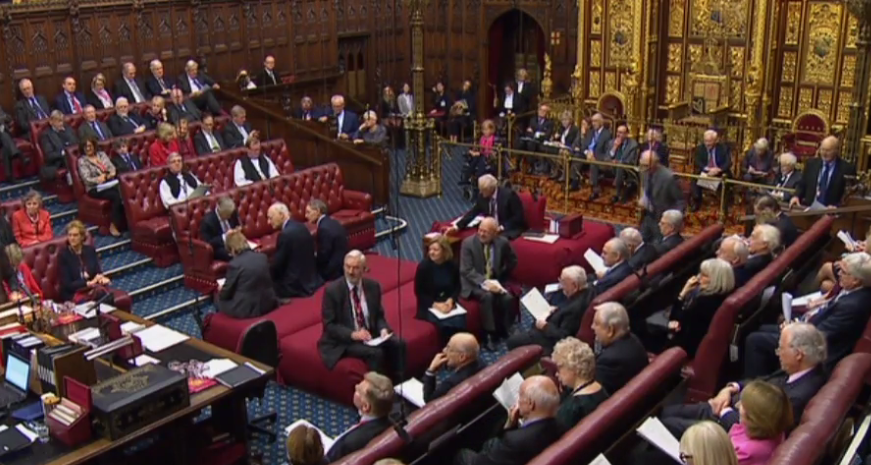
Unit Deputy Director Professor Peter Magill was recently in Westminster for a week of science and policy, as he began his participation in The Royal Society’s Pairing Scheme.
The Scheme, which takes place annually, pairs around 30 scientists with UK parliamentarians and civil servants, with a view to facilitating interactions and mutual understanding between researchers and policymakers. Over the ‘Week in Westminster’, the scientists take part in workshops focused on the interface of science with policy, hear from expert speakers drawn from academia, learned societies and government, and spend two days shadowing their pair in government. In turn, parliamentarians and civil servants experience the world of research through undertaking reciprocal visits to the scientists’ institutions.
Peter was paired with Lord James O'Shaughnessy, Parliamentary Under Secretary of State for Health (Lords). Peter was invited to shadow Lord O'Shaughnessy and his team for many of their daily engagements at the Department of Health, the House of Lords and further afield, including policy briefings, strategy meetings, keynote speeches, and question time in the chamber of the upper house.
Peter commented: “My time in Westminster was an extraordinary and invaluable experience. It was highly informative and empowering, and - just as important - really enjoyable. I have taken away a fresh perspective on how research findings can help inform the creation, scrutiny and revision of policy, as well as a better understanding of how researchers can get involved in the process. I was also struck by the openness, veracity and multitasking of my hosts working in government. I have no hesitation in strongly recommending the Pairing Scheme to other scientists and policymakers.”
You can learn more about Peter’s experience on the University of Oxford’s Science Blog, and follow his day-by-day activities on the Unit’s Twitter account.
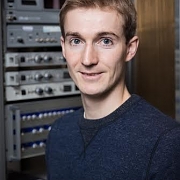
Many congratulations to Dr Gido van de Ven on being awarded the British Neuroscience Association’s (BNA) Postgraduate Prize for 2017.
The Prize is given annually to an individual postgraduate student on the basis of their outstanding performance in their studies, including the final thesis examination.
Gido was awarded this year’s Prize for his D.Phil. thesis research on the reactivation and reinstatement of hippocampal cell assemblies, as carried out in the Unit under the supervision of Unit Programme Leader Dr David Dupret.
Dr Dupret commented “I had the pleasure of supervising and working closely with Gido for almost 4 years. During this time, Gido was an exceptional student, consistently demonstrating a rare combination of insight, creativity and excellent technical ability. This Prize is a great achievement. Keep up the good work, Gido!”
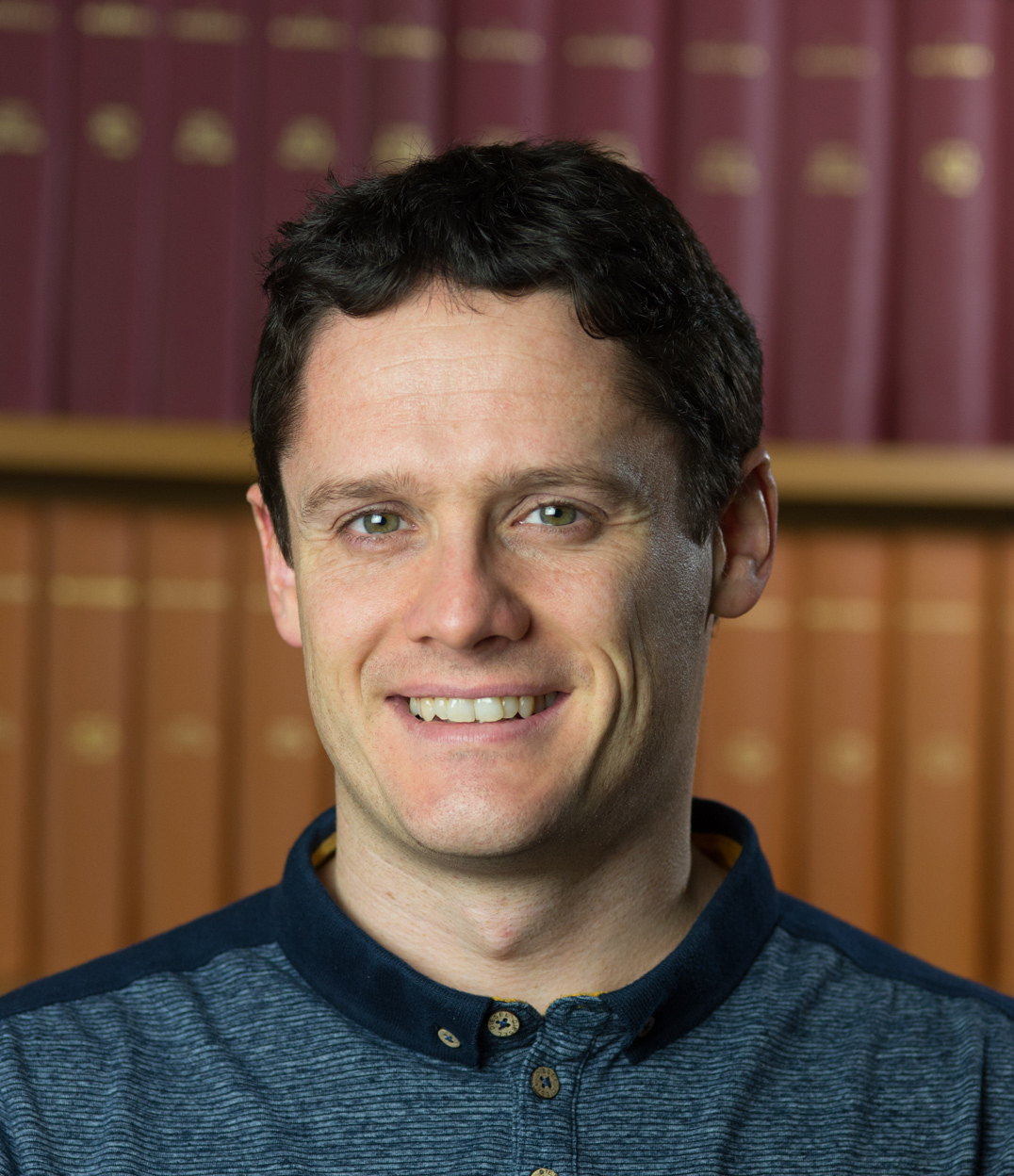
Congratulations to Unit scientist Dr Colin McNamara who has been awarded a prestigious Sir Henry Wellcome Postdoctoral Fellowship by the Wellcome Trust in support of his new research project entitled “Closing the loop on neuronal oscillations: Motor networks take centre stage”.
This Fellowship scheme offers recently qualified postdoctoral researchers the opportunity to start independent research careers, working in some of the best research environments in the world.
Colin will pursue his 4-year research project in the Unit under the sponsorship of Programme Leader Dr Andrew Sharott, as well as at Imperial College London in collaboration with Dr Timothy Constandinou. Colin will also be mentored by Professor Pascal Fries of the Ernst Strüngmann Institute, Germany.
Colin originally joined the Unit to pursue his D.Phil. studies in Dr David Dupret’s Group, where he investigated the influence of dopamine on hippocampal circuit dynamics and memory formation. Since graduating, Colin has been working as a Postdoctoral Neuroscientist in Dr Sharott’s Group in the Unit.
Unit Deputy Director Professor Peter Magill commented “We are thrilled for Colin. He is an exceptional scientist, outstanding collaborator, and a valued colleague. Colin’s new Fellowship is well deserved, and is a fitting testament to the culture of research training and career development that we have established at the Unit.”
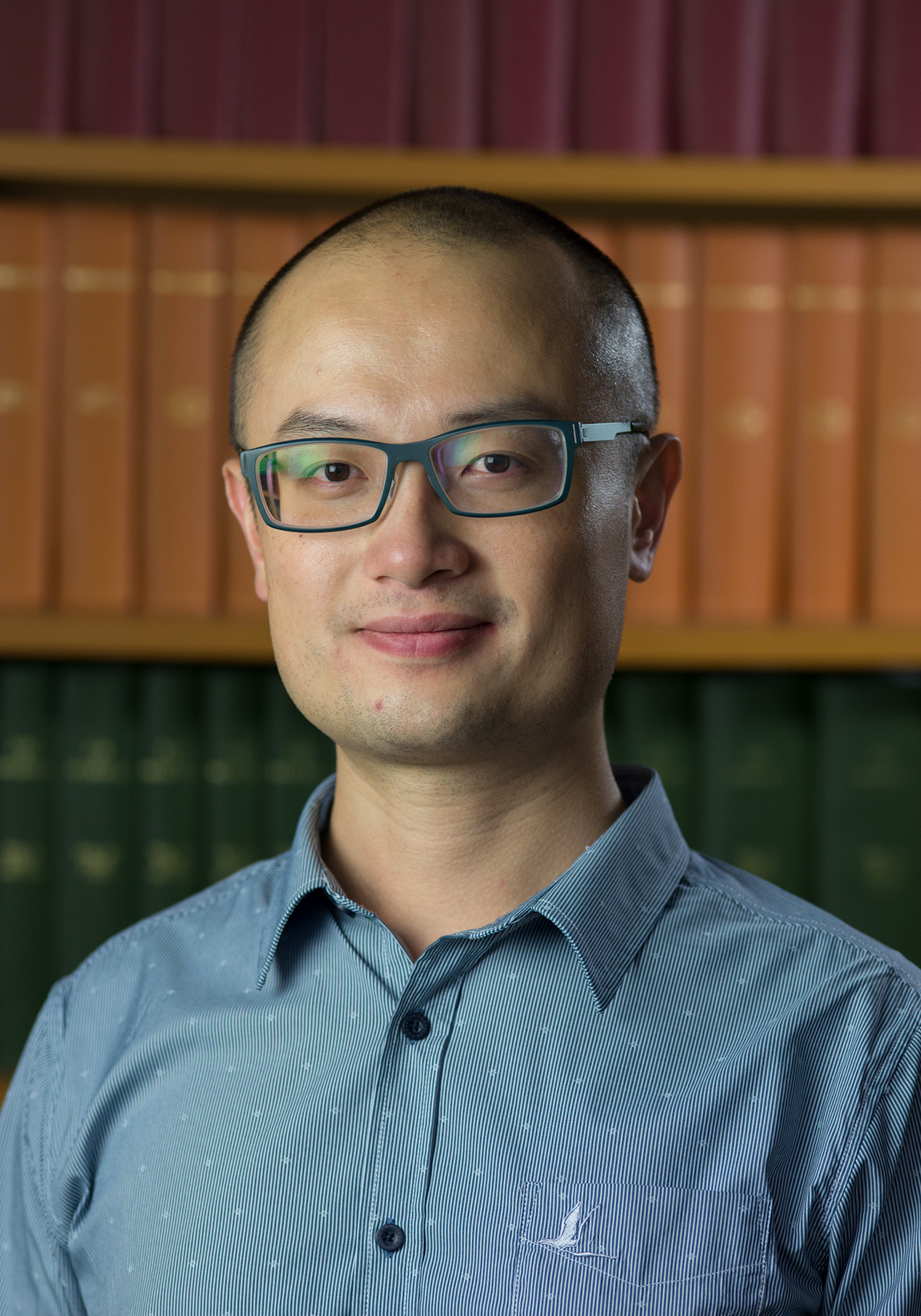
We are pleased to welcome Dr Chien-Hung Yeh to the Unit as a Postdoctoral Research Fellow in Professor Peter Brown’s Group.
Chien-Hung graduated from the National Central University, Taiwan, with a D.Phil. in Engineering. As part of Chien-Hung’s D.Phil. degree, he completed his thesis at the Research Center for Adaptive Data Analysis, where he used nonlinear approaches to analyze physical and biological signals, and developed effective biomarkers for clinical use. Thereafter, Chien-Hung continued his research at Harvard Medical School and Brigham and Women's Hospital, USA, working on the existence of spurious cross-frequency coupling in nonstationary and nonlinear signals, and identifying seizure dynamics in patients and circadian dynamics in animal models. After that, he worked with Dr Chiung-Chu Chen in Taiwan on oscillatory activity in the subthalamic nucleus, with special emphasis on gait disturbance.
In 2017, Chien-Hung was awarded a scholarship from the Postdoctoral Research Abroad Program in Taiwan to join the Unit. Chien-Hung will continue to research human gait, in collaboration with Dr Chiung-Chu Chen in Taiwan, as well as with Petra Fisher, Huiling Tan and Peter Brown in the Unit.
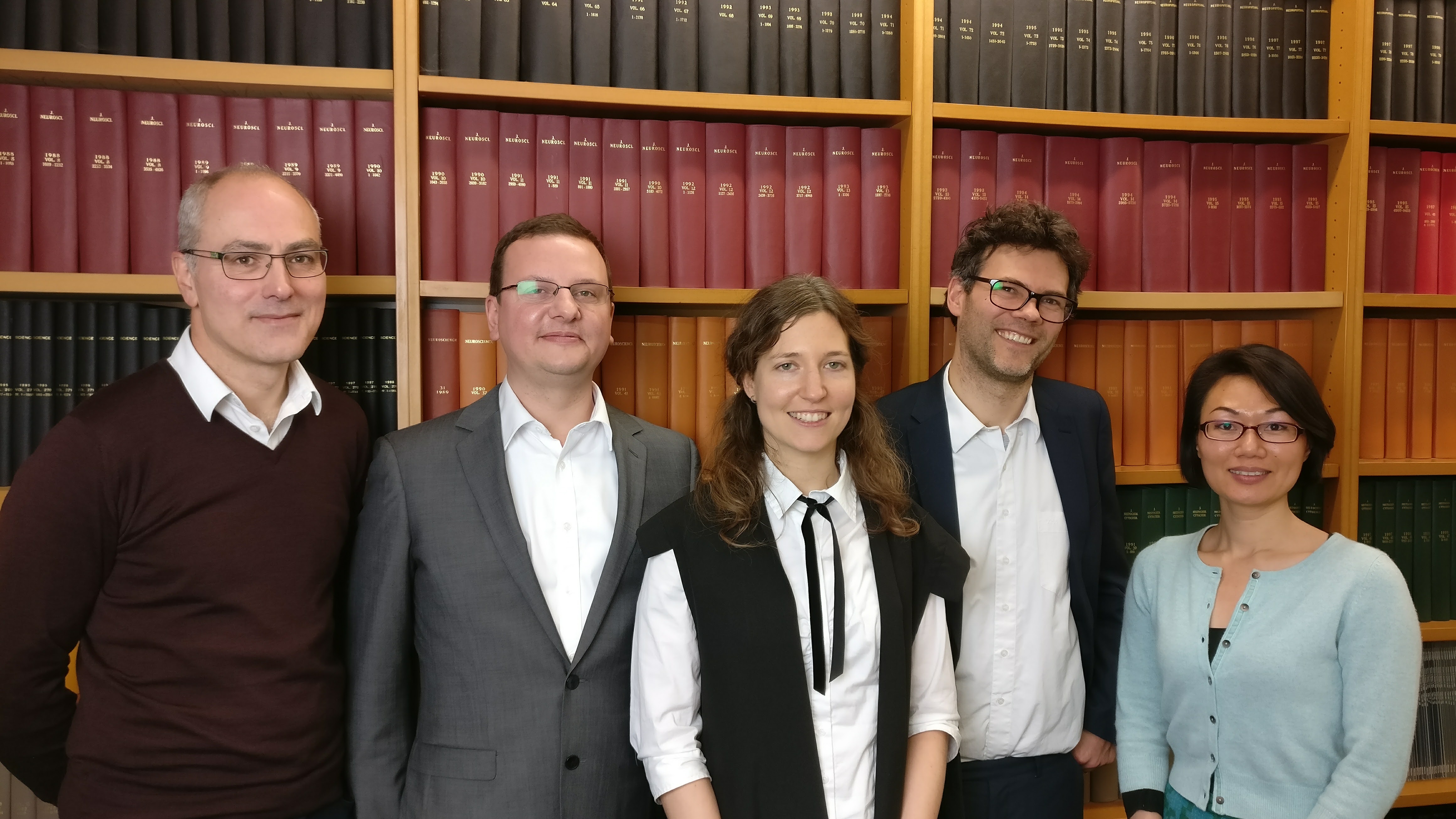
Our congratulations go to Unit D.Phil. student Petra Fischer for successfully defending her doctoral thesis, entitled "Neuronal dynamics of flexible motor control in the human subthalamic nucleus and cortex", in her viva voce examination on 6th November 2017.
Petra’s examiners were Dr Robert Schmidt (Department of Psychology, University of Sheffield) and Associate Professor Mark Stokes (Departments of Psychiatry and Experimental Psychology, University of Oxford).
Petra was supervised by Professor Peter Brown and Dr Huiling Tan.
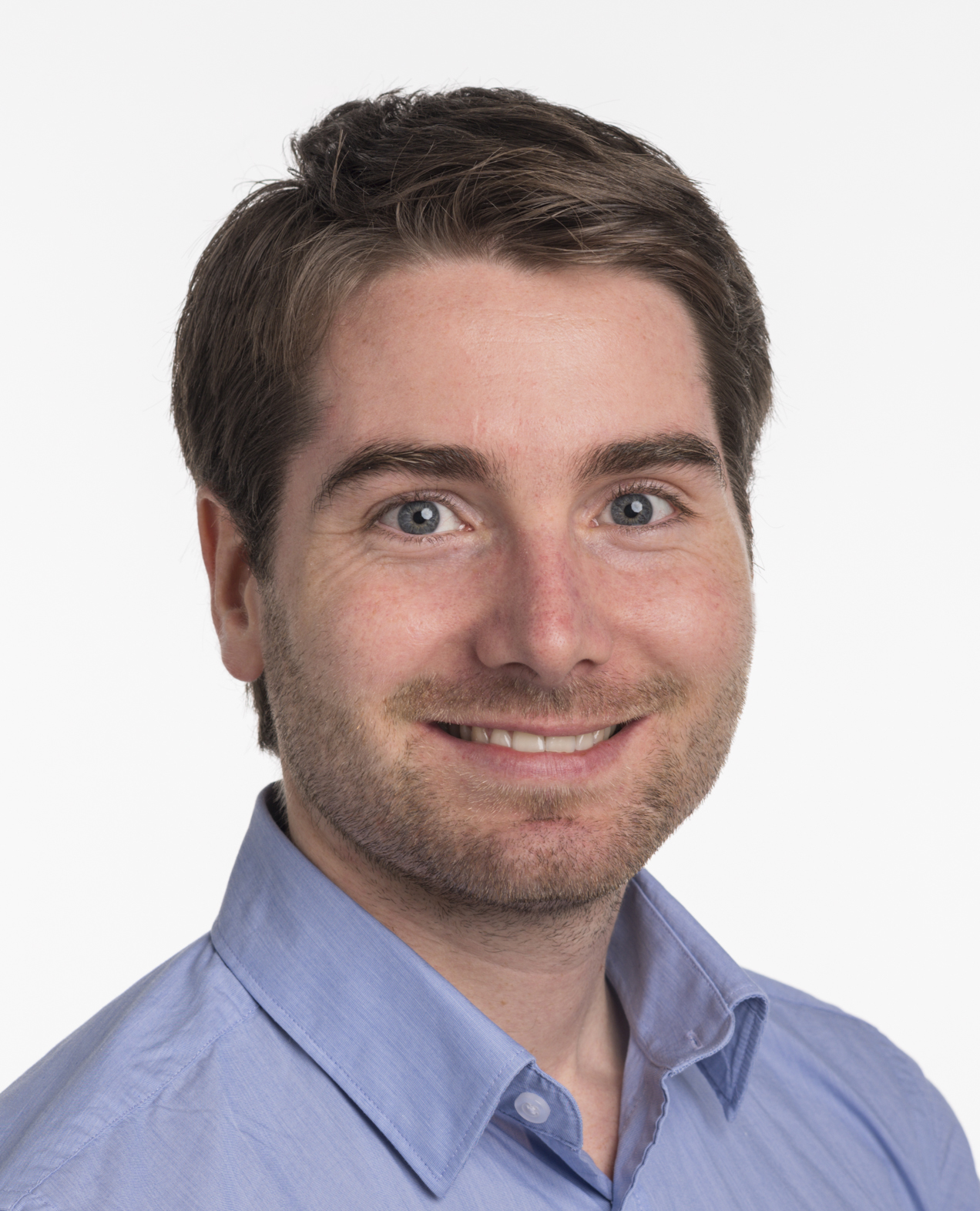
Congratulations to Unit scientist Dr Gerd Tinkhauser who has been awarded a prestigious grant from the Swiss Parkinson Association in support of his research project entitled “Electrophysiological recordings to optimise deep brain stimulation for Parkinson’s disease”. This project is a collaboration between the Unit and the Department of Neurology and Neurosurgery, University Hospital Bern, Switzerland.
Gerd joined the Unit after receiving a Research Training Fellowship from the European Academy of Neurology, and has already produced encouraging results for his new project.
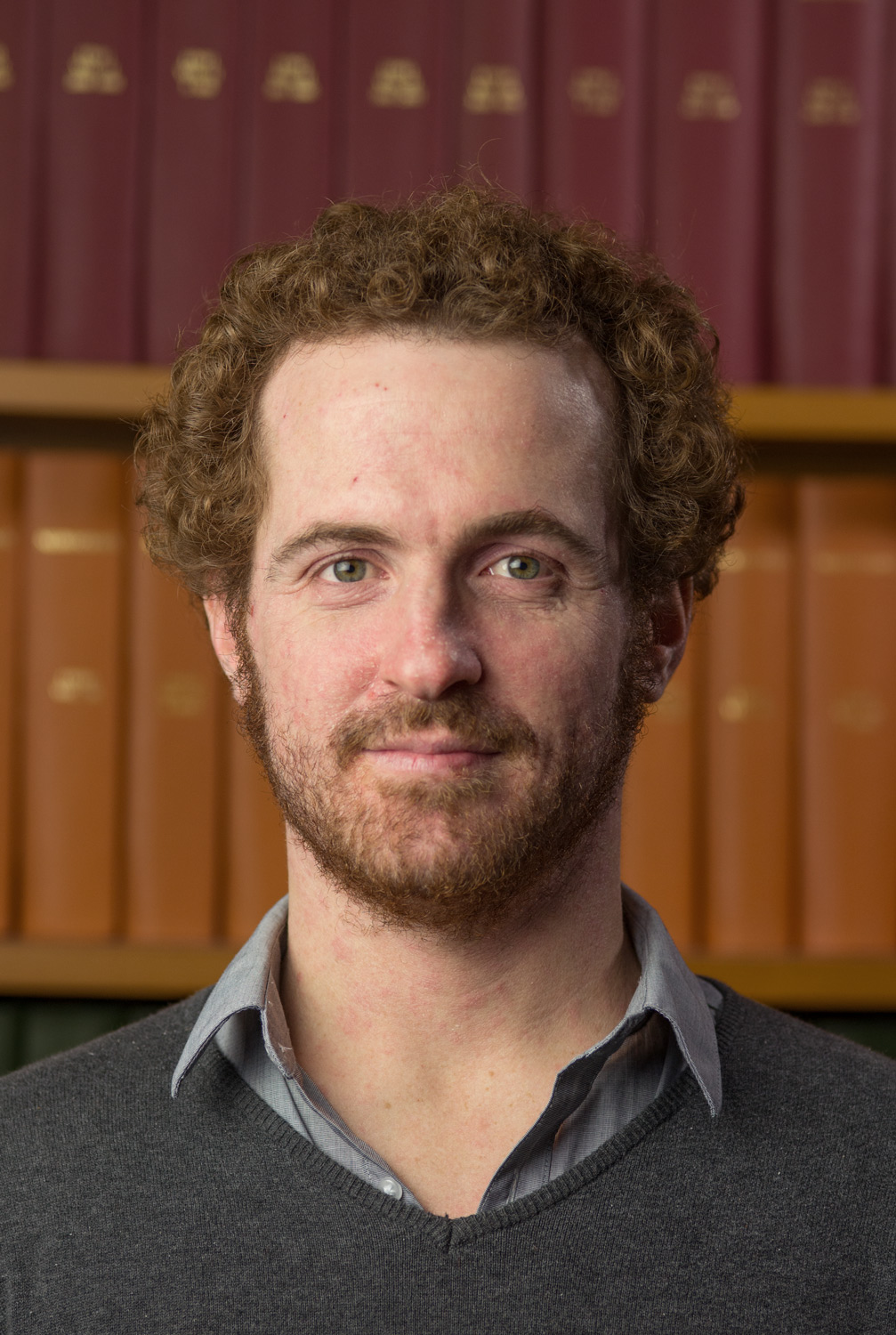
We are pleased to welcome Dr Julien Carponcy to the Unit as a Postdoctoral Neuroscientist in the Magill Group.
Julien originally graduated with a M.Sc. in Neurosciences, Behaviour and Cognition from the University of Toulouse, France. During Julien’s undergraduate studies, he completed two research internships in Toulouse, working on the involvement of hippocampal subregions in spatial and contextual memory. As part of a third research internship in Seville, Spain, Julien investigated the synchronization of brain oscillations within the limbic network during instrumental and observational learning. Julien then completed his Ph.D. at the Lyon Neuroscience Research Center, France, where he used behavioural tasks and in vivo electrophysiology to study the effects of different sleep stages on memory and synaptic plasticity.
Here in the Unit, Julien will be defining the functional organisation of the external globus pallidus, using a combination of in vivo electrophysiological recordings, cell-type-selective manipulations (optogenetics), and behavioural analyses, as well as ex vivo neuroanatomy.
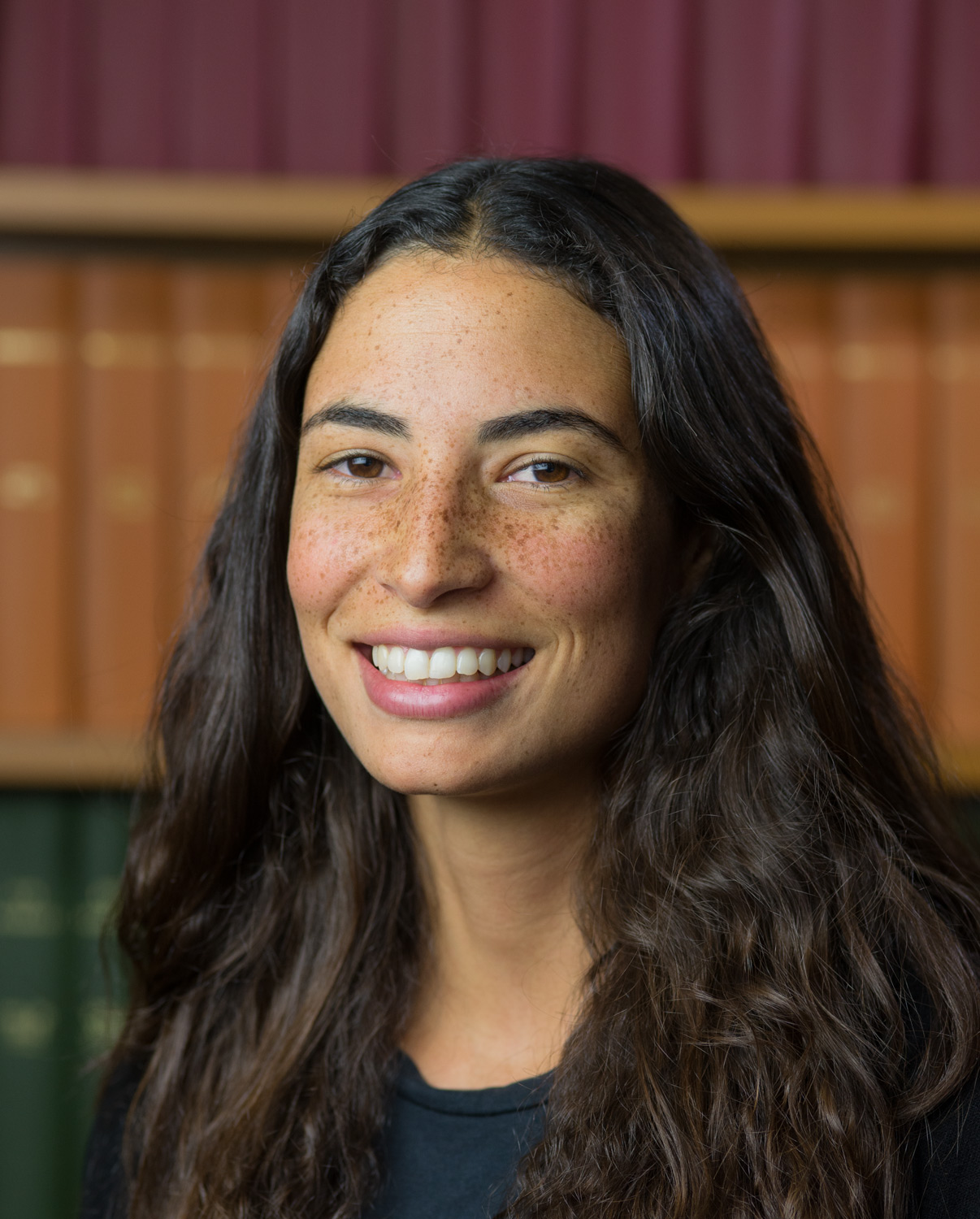
We are pleased to welcome Carolina Reis to the Unit as an MRC-funded D.Phil. student in Professor Peter Brown’s Group and Dr Andrew Sharott’s Group.
Carolina originally graduated from the Instituto Politecnico do Porto, Portugal, with a B.Sc. in Neurophysiology. As part of Carolina’s B.Sc. degree, she completed a research project at King’s College Hospital, where she used a combination of electrical stimulation and intracranial recordings to explore the neuronal mechanisms underlying seizure onsets. Subsequently, Carolina obtained an M.Res. at University College London, where she worked with Associate Unit Member Dr Hayriye Cagnan on biophysical models of cortico-thalamic interactions describing transient beta oscillations in experimental Parkinsonism.
In 2017, Carolina secured an MRC Industrial Strategy Studentship and joined the Unit. During her D.Phil. studies, Carolina will be working to optimise phase-specific Deep Brain Stimulation for conditions like Essential Tremor. Carolina will be working closely with Dr Hayriye Cagnan, Dr Andrew Sharott and Professor Peter Brown in the Unit, as well as with Dr Timothy Denison (VP of Research and Core Technology at Medtronic).
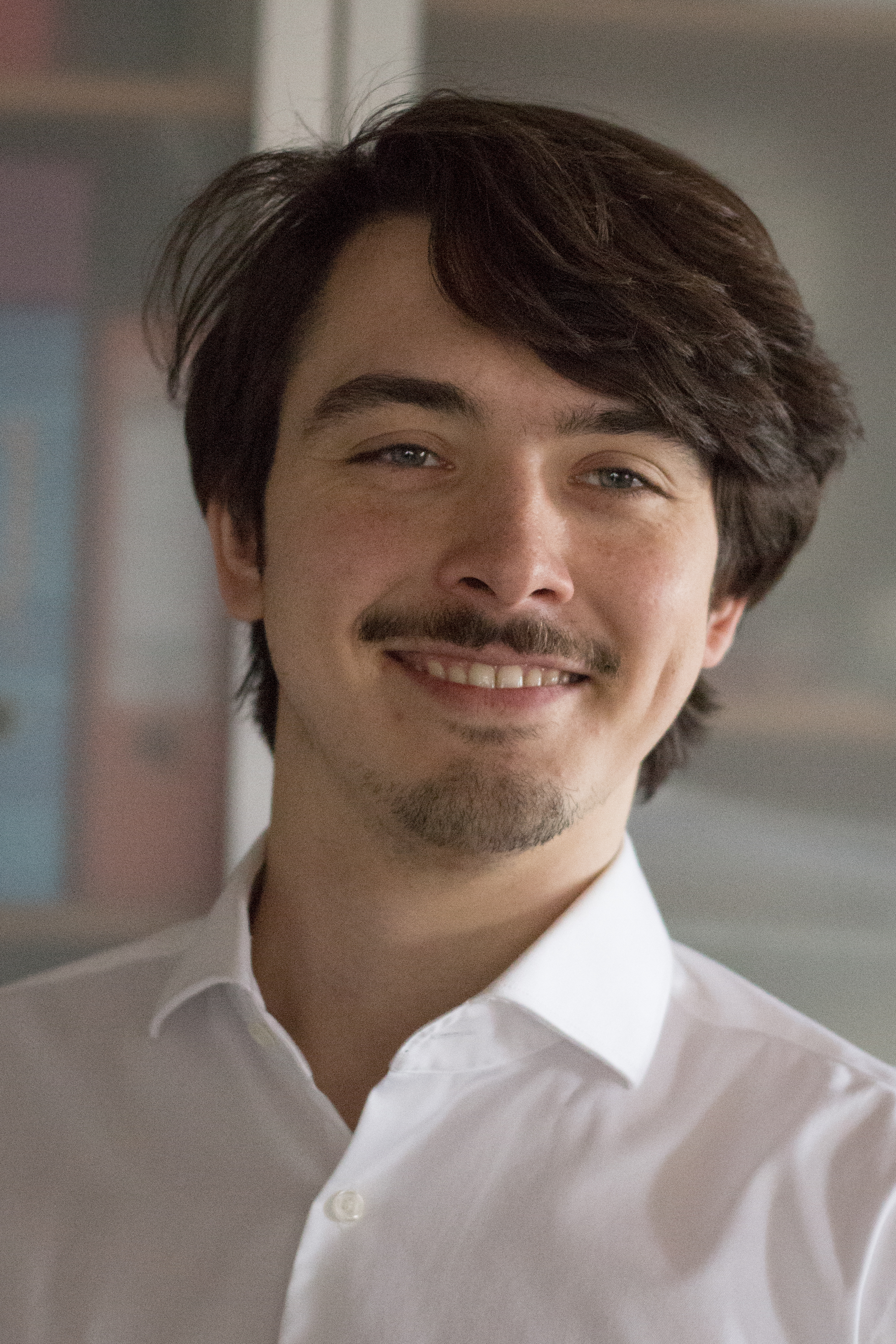
We are pleased to welcome Moritz Möller to the Unit as an MRC-funded D.Phil. student in Rafal Bogacz’s Group.
Moritz originally graduated with a B.Sc. in Physics from the Friedrich Alexander University in Erlangen, Germany, where he studied the generation of gravitational waves in a novel, post-Einsteinian theory of gravity. In 2017, Moritz completed a Master of Advanced Study (MA.St.) in Applied Mathematics at the University of Cambridge, from where he graduated with distinction. Whilst in Cambridge, Moritz wrote an essay on deep reinforcement learning, which sparked his interest in the mathematics of learning and decision making in the brain.
During Moritz’s D.Phil. thesis work in the Unit, we will pursue his interests in the mathematical formulation of cognition and learning. His research will be focused on decision processes in the basal ganglia, and aims to unify reinforcement learning with the drift-diffusion model.
